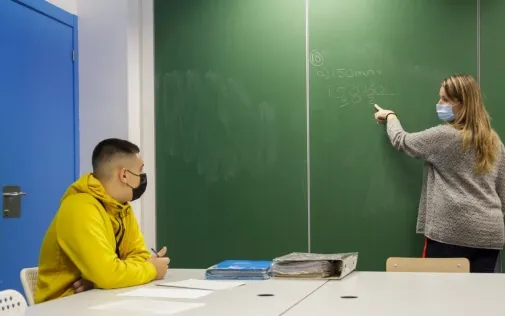
"The world is increasingly globalized, and interculturality and interraciality are an unstoppable reality. We must find new ways to overcome the fear of what is unknown and different, leave prejudices behind."
More than 500 years ago a process of globalization began with a strong change in the perception of culture and society. Even so, if we remember cases like that of George Floyd in 2020, we understand that there is still a long way to go regarding the right to equality within a democratic society.
On the International Day for the Elimination of Racial Discrimination, I invite you to reflect on the situations of racism that happen in our everyday life.
Many racialized young people from the Comtal Foundation's Second Chance School explain daily in the classroom how they feel discriminated against. Some are young people who were born in Catalonia (their relatives are of Northern European, African, Asian or Latin origin), and others are young migrants who live a very complicated life process until they manage to have the same rights here as anyone else person
How would it affect you if, when you get on the subway, you see the people next to you clutching their purses, thinking you're going to steal them? How would you have felt if at school your classmates didn't talk to you because of having a different skin color than theirs? Or what would happen if you could not access a flat to rent because you are of foreign origin, even if you have a valid employment contract and a study grant? And if for the same reason you are also not selected for a job?
These are just a few examples of the consequences of racial discrimination and the day-to-day lives of many of the young people who study with us.
Faced with this series of situations, it is important to ask ourselves what kind of society we want to offer to our future generations and how we can improve it.
The world is increasingly globalized, and interculturality and interraciality are an unstoppable reality. We must find new ways to overcome the fear of the unknown and different, leave prejudices behind, and take tolerance and respect as a banner to move towards a fully egalitarian society, "where all people have the the same rights and freedoms, without any distinction of race, color, sex, religion or origin" - Article 2 of the Universal Declaration of Human Rights.



Add new comment